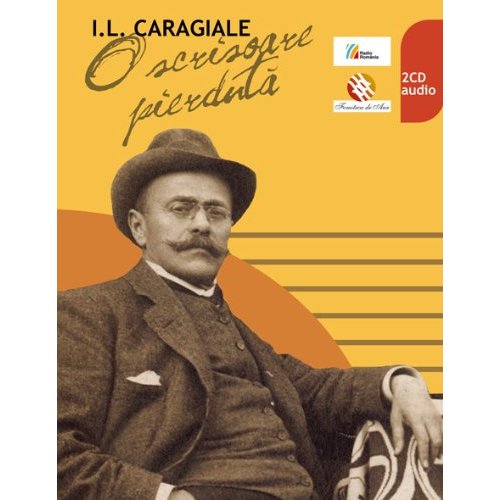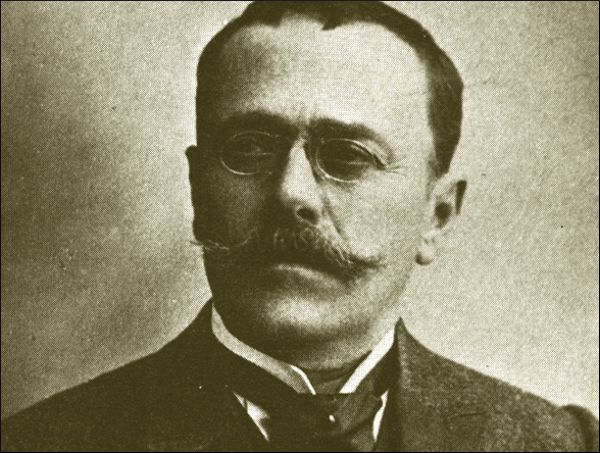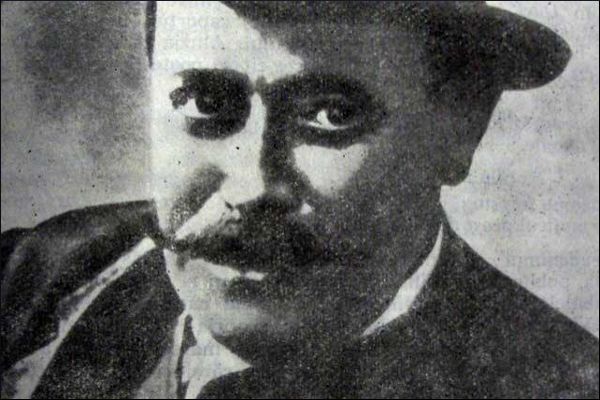
- A Lost Letter
- Published by: Editura Maxim Bit (2007)
- Level: Intermediate
- First Published in: 1884
A lost letter between two lovers endangers their extramarital relationship and their future in society, as a political opponent of both the woman's husband and her lover, both members of the ruling party, hopes to use the text to provoke a scandal that affects all three and turns the tide of the upcoming deputy elections in his favor.

O scrisoare pierdută (A Lost Letter), written by playwright and writer Ion Luca Caragiale in 1884, is a comedy of political manners which illustrates the desires of the bourgeoisie during a campaign for the election of deputies. Amid the turmoil, conflicts arise between the members of the ruling party (Ştefan Tipătescu, Zoe and Zaharia Trahanache, Farfuridi and Brânzovenescu) and those of the opposition (Caţavencu and the group of "independent intellectuals"). These ridiculous characters are placed in humorous situations in order to satirize the political mores of the time.
"These ridiculous characters are placed in humorous situations in order to satirize the political mores of the time."
The title of the play can be explained as follows: there is a love triangle between Ştefan Tipătescu, Zoe Trahanache, and her husband Zaharia Trahanache. Ştefan and Zoe are lovers, and he sends her a love letter, but it is lost. A tormented citizen finds it, though the miracle does not last long, because Caţavencu steals the letter from the citizen and plans to blackmail Zoe in order to assure his deputy post. But the funny thing is that he loses the letter, too. The love letter is found again by the tormented citizen, who returns it to Zoe, thus closing the circle.

The characters are very funny, come in different types, and have various verbal tics and grammatical errors. Ştefan Tipătescu is an incurable lover, described by Zaharia Trahanache as “un bun băiat cu carte, dar iute” (a good and intelligent boy, but rushed). Zoe believes Ştefan is crazy for asking her to leave with him and forget about the problems they both have. Zaharia Trahanache is another funny character. His name derives from the word “trahana”, which means “soft dough,” and it suggests that he is very easily influenced by others. He refuses to believe that his wife has an affair with Ştefan, and he has a verbal tic, which annoys a lot of people: “ai puţintică răbdare” (have a little patience). Zoe is very intelligent and knows how to hide certain things. She remains calm when Caţavencu tries to blackmail her and tells her that the love letter will be published in the local newspaper if he doesn’t get the deputy post. She also shows affection for her husband, so that he won’t realize she is having an affair.
"A Lost Letter, reveals the dishonest means used in political struggle: corruption and demagoguery."
The play’s language is accessible, although the writer uses some words that no longer exist in contemporary Romanian: “caragioz” (modern form is “caragios” = “funny”), “bampir”(“vampir” = “vampire”), “soţietate” (“societate” = “society”), “misie” (“misiune” = “mission”), and “fotel” (“fotoliu” = “armchair”). Caragiale, in A Lost Letter, reveals the dishonest means used in political struggle: corruption and demagoguery. At the same time, he highlights the ignorance, stupidity, and immorality of the politicians of his time, negative traits that also characterize intimate family life.

